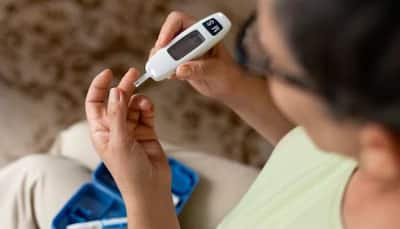November 14 is observed as World Diabetes Day and the day aims to raise awareness about high blood sugar or diabetes. According to the World Health Organization, diabetes is a “chronic, metabolic disease characterised by elevated levels of blood glucose (or blood sugar), which leads over time to serious damage to the heart, blood vessels, eyes, kidneys and nerves”. It’s important, doctors say, to be aware of the risk of diabetes and it’s crucial to tackle the problem as early as possible.
Even before you develop diabetes, there’s a stage called pre-diabetes. Dr Dheeraj Kapoor, Head of Endocrinology, Artemis Hospitals, shares, “Prediabetes is often referred to as the grey zone between normal blood sugar and diabetes; it has become a growing health threat, of which most people have never heard of. Its presence does not always result in Type 2 diabetes, but silent progression has instilled worry among people regarding serious complications, such as heart diseases, strokes, and kidney problems. Moreover, as it remains largely unreported; therefore, one needs to know the early warning signs and preventive measures for its development.”
Many of those who have prediabetes have no symptoms. “There are, though, some minor warning signs that may suggest high risk, such as darkened skin in the areas of the neck and elbows, called acanthosis nigricans, which is associated with insulin resistance. The other would be constant fatigue, wherein you feel tired even though you have had enough sleep,” shares Dr Kapoor. Some other symptoms to watch for would be sudden weight gain, particularly around the abdomen region. “These symptoms can be quickly dismissed, but they may translate to your body not effectively managing blood sugar. Early detection of these conditions helps prevent the advancement to type 2 diabetes,” Dr Kapoor adds.
Pre-diabetes is prevented by lifestyle changes. “Diets that have less refined sugar and processed food are rather indispensable. Food fibre, lean proteins, and healthy fats help in keeping blood sugar stable. Regular exercise, including brisk walking or resistance training, is a good agent of weight management alongside taking good care of the insulin response,” says Dr Kapoor. He adds, “Another essential is weight control. Literature shows that a reduction of 5-7% in body weight can drastically decrease the chances of developing type 2 diabetes. Controlling blood sugar is also necessary, particularly when there is a family history of diabetes or you are overweight. In short, early detection and some preventive steps can control the condition of prediabetes. Awareness and timely intervention would prevent the serious complications that take shape with this silent but dangerous condition.”
Stay informed on all the , real-time updates, and follow all the important headlines in and on Zee News.









